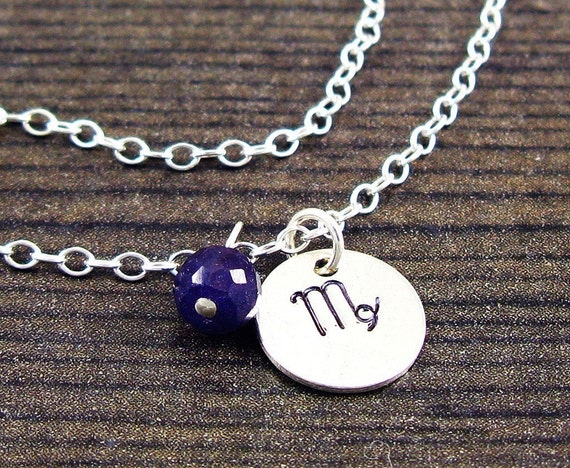I first have to establish a disclaimer. I don't know what I am religiously. I don't even know if I like the concept of religion. In any case, I go by the rule that
"I respect faith, but it's doubt that gets you an education." (Wilson Mizner)
But I think we can agree that we all wonder about where all of this came from and why we're here. This is a topic that StumbleUpon has found that I'm fascinated in. It likes to show me things like this:
which it so interesting. As I've observed religion over the last few years, I've found that a lot of the purpose of it is to create explanations. Why are we here? What is our purpose? What should our moral code be? Humans take on this very self-centered perception when it comes how we got here. But I side with science when it comes to "the beginning."
Below is an argument between a theist (T) and an atheist (A) with much thanks from this site.
T: Where did the universe come from?
A: Why did it have to come from anything?
T: Everything has to come from something.
A: Then, you tell me. Where did the universe came from?
T: The universe came from God.
A: Where did God come from?
T: God did not have to come from anything. He always was.
A: Then everything does not have to come from something after all. Perhaps the universe always was.
T: Philosopher William Lane Craig has argued that the universe had a beginning, therefore it must have had a cause. That cause is God.
A: Quantum events can happen without cause. Perhaps our universe was a quantum event in a larger universe that always was.
T: You have no evidence for this.
A: You have no evidence against it. Current physics and cosmology allow for such a scenario.
T: How could this happen? Where did the matter and energy of the universe come from?
A: Matter was created from energy in the early universe. Observations indicate that the positive energy of matter is exactly balanced by negative gravitational potential energy. Thus, the total energy of the universe is zero and no energy (or very little--just the amount allowed by quantum mechanics) was required to produce the universe.
T: Where did the order of the universe come from?
A: It could have been produced spontaneously by natural processes of a type that are now beginning to be understood in physics. One such process is called "spontaneous symmetry breaking." It's like the formation of a snowflake.
T: Still, the second law of thermodynamics says that disorder, or entropy, must increase with time. It must have started out more orderly than it is now, as created by God.
A: An expanding universe allows increasing room for order to form. The universe could have started as a tiny black hole with maximum entropy, produced by a quantum fluctuation, and then exploded in the big bang.
T: You can't prove that. No one was there to see it.
A: You can't disprove it. Such a scenario is allowed by current scientific knowledge.
 T: Many prominent scientists don't think the big bang happened. What does that do to your scenario?
T: Many prominent scientists don't think the big bang happened. What does that do to your scenario?
A: The data from cosmological observations, which has improved enormously in just the last few years, has left no doubt among current working cosmologists that the big bang happened. The remaining holdouts are a few older astronomers who are gradually dying out. They are like some nineteenth century chemists and physicists who refused to accept the atomic theory to their dying days. Furthermore, the big bang is used by theists such as Craig and Hugh Ross to support their theologies. It does not, but I caution atheists not to argue against theism by saying the big bang did not occur. It very definitely did.
T: But isn't the universe fine tuned for life? Isn't it true that the slightest change of any one of a number of physics constants would make life impossible? Is this not evidence for a universe intelligently designed for life?
A: The universe is not fine tuned for life. Life is fine tuned for the universe. If we had a universe with different constants, we might have a different kind of life.
T : Doesn't life require carbon, which would not exist without a delicate balance of nuclear parameters?
A: Our kind of life, yes. We do not know about other kinds of life.
T: You can't prove that life is possible without carbon.
A: I do not have the burden of proof here. You are making the claim that only one kind of life is possible, carbon-based life. You have to prove that. I am simply saying that we do not know and so cannot say the universe is designed for life as we know it. It could have been an accident. Nothing in current science says that is impossible,
T: So, even if everything that happens is natural, as you claim, where did the laws of nature come from?
A: The laws of nature are misnamed. They are not necessarily rules that govern the universe, that sit out there in some kind of Platonic reality. They could just as well simply be human inventions, descriptions we have made of observations.
T: Then they are subjective. We can all make our own laws.
A: Not quite. We can make up different laws if we want, but they are not scientific unless they agree with observations. The laws of physics can be written in many different ways, but they agree so well with the data that we are confident they describe aspects of reality.
T: Well, then where did those aspects of reality come from, if not from God?
A: Why did they have to come from anything? But, that's how we started this discussion.
T: Still, you have to explain why there is something rather than nothing.
A: Define nothing.
T: Nothing. No thing. No matter, no energy, no space, no time, no laws of physics.
A: No God?
T: God is a separate entity who created matter, energy, space, time and the laws of physics from nothing.
A: I won't ask you again who created God. Rather, why was it necessary for the universe to have come from nothing?
T: It had to come from something.
A: But you just said it came from nothing!
Fascinating, right? I especially am interested in the concept that our lives are fine-tuned to the universe, not the other way around. This dawned on me after reading a DearBlankPleaseBlank about global warming which went something like this:
Dear humans facing global warming,
I'll be fine. You guys are screwed, though.
Love, the earth.
It's true. The earth happens to be at the right parameters for life right now. We're the ones throwing it out of balance, and if that continues, we won't be able to live anymore. But though I am quite the eco chick who runs around saying "save the Earth!", I realize that that's kind of a self-centered way to put it. We're not saving the earth. We're saving the way that Earth is now for the sake of our being able to live. Of course we're also trying to protect other life and the like, but the Earth could live without us. Heck, it might be better off without us.
From the beginning of the world to global warming...that's what Paradigm Carnival is about.

 Cute, right? You have to wonder how it would go over with the people. My biggest worry would be seeing it from far away. I do like the notion have seeing how long the light will be. For environmental reasons, I've heard it said that it is beneficial to turn off your engine if you'll be sitting at the light for more than sixty seconds. Some lights I'm more familiar with and I know it will be long enough to turn my engine off; ones in new places I can't know until it's too late. The future of stoplights? Maybe. Tell me what you think about it.
Cute, right? You have to wonder how it would go over with the people. My biggest worry would be seeing it from far away. I do like the notion have seeing how long the light will be. For environmental reasons, I've heard it said that it is beneficial to turn off your engine if you'll be sitting at the light for more than sixty seconds. Some lights I'm more familiar with and I know it will be long enough to turn my engine off; ones in new places I can't know until it's too late. The future of stoplights? Maybe. Tell me what you think about it. For example, I'm a Virgo and proud of it. Most all of the characteristics that Virgos are said to have I certainly have.
For example, I'm a Virgo and proud of it. Most all of the characteristics that Virgos are said to have I certainly have.